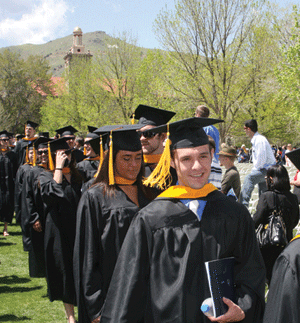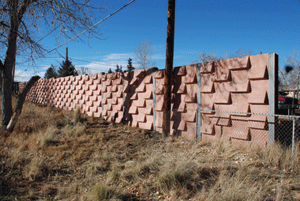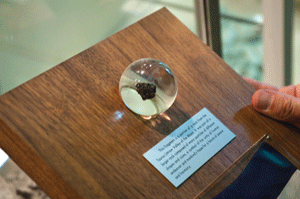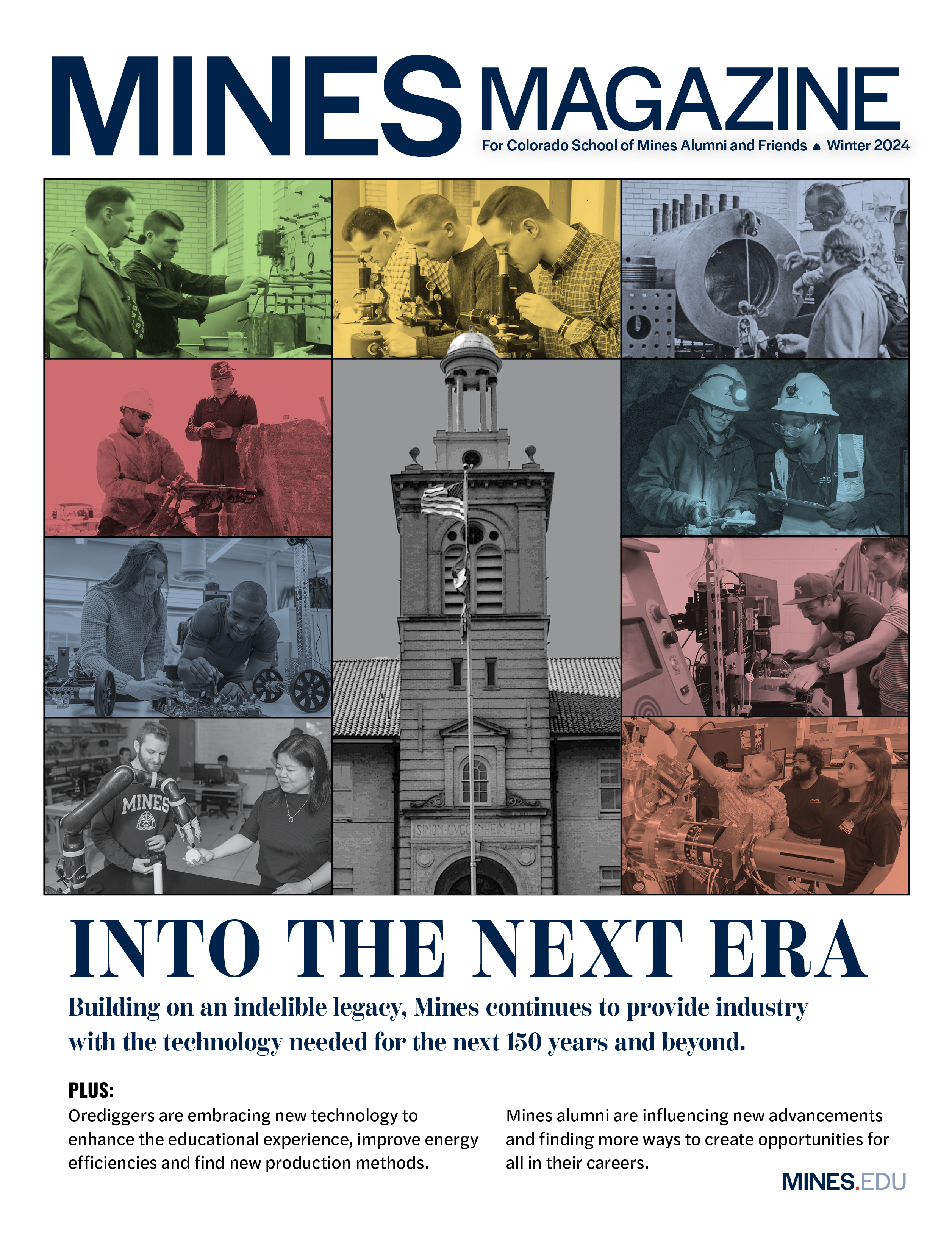Articles in the media and discussions about hydraulic fracturing often focus on water: how the additional demand will be met without limiting local supplies, how to protect groundwater, and how water co-produced with oil and gas will be treated and handled for disposal or reuse. Finding reliable answers to these questions is not always easy, especially since conflicting studies and information can lead to mistrust among stakeholders.
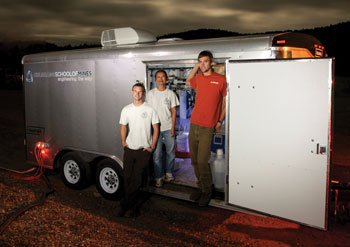
One of the reasons ConocoPhillips selected Mines for the new WE2ST center is the potential for valuable collaborations with existing water programs on campus. AQWATEC is a good example. This photo of faculty and students from AQWATEC outside their mobile lab was taken during a trip devoted to analyzing co-produced water from oil and gas wells in southern Colorado’s Raton Basin. Left to right: Nathan Hancock ’07, MS ’08, PhD ’11, Pei Xu (former research professor) and Andrew Wait ’10, MS ’12. Photo: davevuono.com
With expertise in water resources and treatment technologies, hydrology, and oil and gas, Mines is a natural fit for the new center. “Unconventional energy development is an important component of U.S. energy security and a key bridge to a cleaner energy future,” says John McCray, head of the Department of Civil and Environmental Engineering at Mines and primary author of the proposal to ConocoPhillips. “Water is a precious resource in the arid West. We need to help industry develop best practices that will protect water quality and water supply.”
The center’s research will be organized around several broad thematic areas: source water/water supply; water treatment as it relates to unconventional energy development; integrated water management issues, including protection of freshwater resources; and the related social issues, including community perceptions, corporate social responsibility and communication among stakeholders.
“We are currently soliciting proposals from faculty to help us develop specific research projects within these themes,” says Terri Hogue, associate professor of civil and environmental engineering and director of WE2ST. “Our goal is to advance technologies that will make the industry’s processes more efficient and improve public perception. Improved on-site water treatment systems, for example, can be not only more efficient for the industry but also less disruptive for local residents when compared to trucking water to off-site locations.”
Having the center study the social side of water sustainability and unconventional energy production was of particular interest to ConocoPhillips. “We cannot be a leading exploration and production company without also being a great water company,” says Al Hirshberg, executive vice president, Technology & Projects, ConocoPhillips. “This initiative is an important extension of our existing global efforts around water sustainability.”
The social research conducted at the center will be directed by Jessica Rolston, Hennebach Assistant Professor in the Division of Liberal Arts and International Studies. Rolston, an anthropologist who studies the sociocultural dynamics of extractive and energy industries, will begin by researching public perceptions and views on energy production, and how communication between stakeholders can be improved. “There’s been a lot of social science research for the nation as a whole, and for communities on the Marcellus Shale, but these studies have not focused on stakeholder perceptions about unconventional resources in Colorado or in other regions in the U.S.,” Rolston says.
“We need to take public perceptions of the risks and rewards of unconventional energy development into consideration up front in the planning process,” McCray says. “As engineers, we like to think we have a handle on the risks of any project, and while that may be true from a technical standpoint, we have more to learn about the potential impacts of energy development on a community. We all hope to develop solutions that will benefit both the general public and water-reliant industrial stakeholders.”


